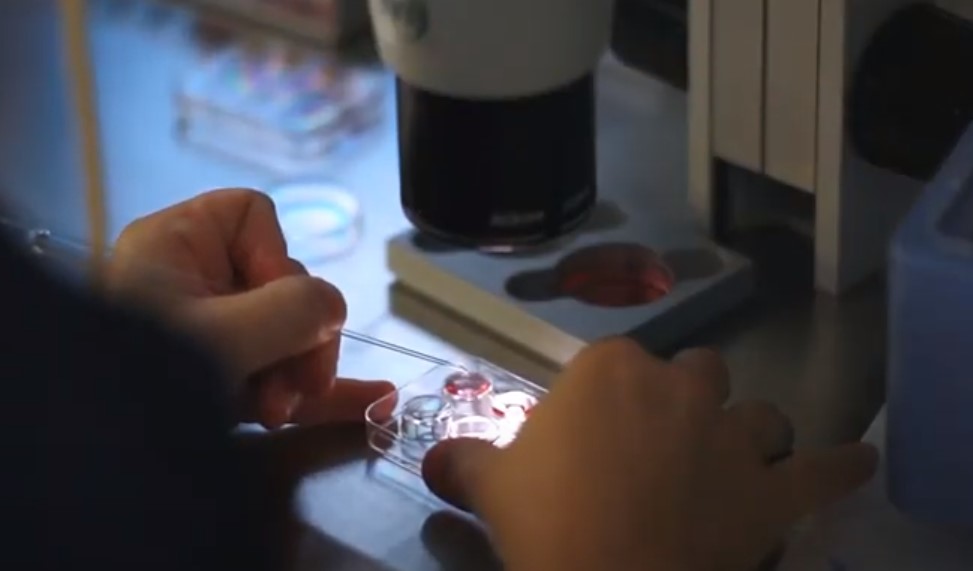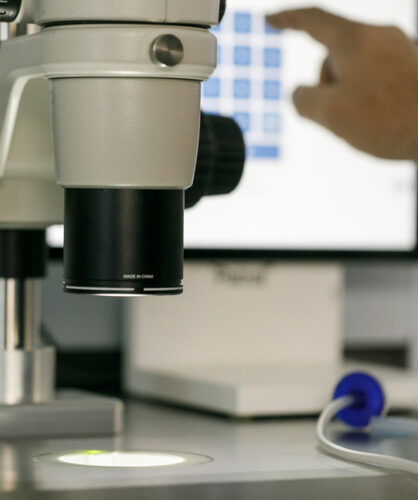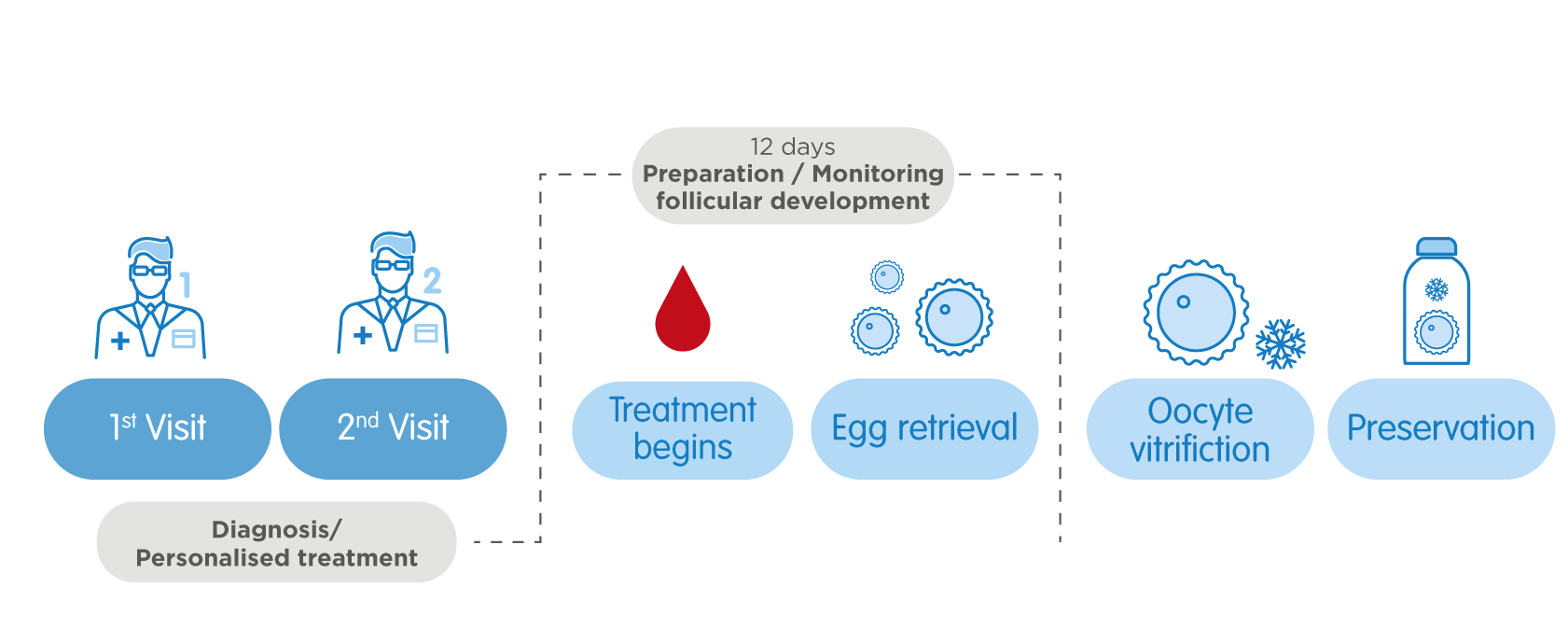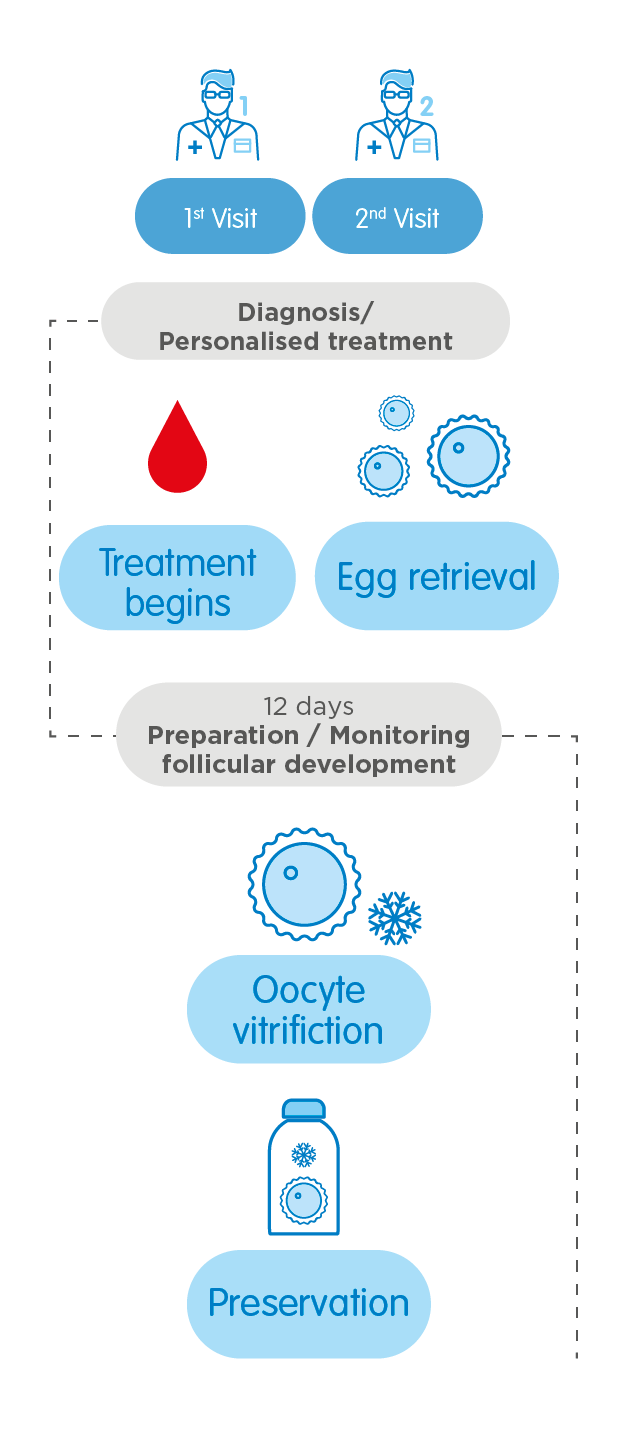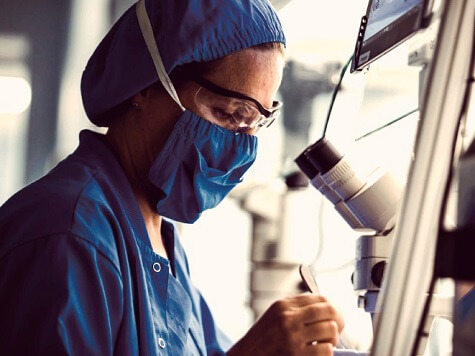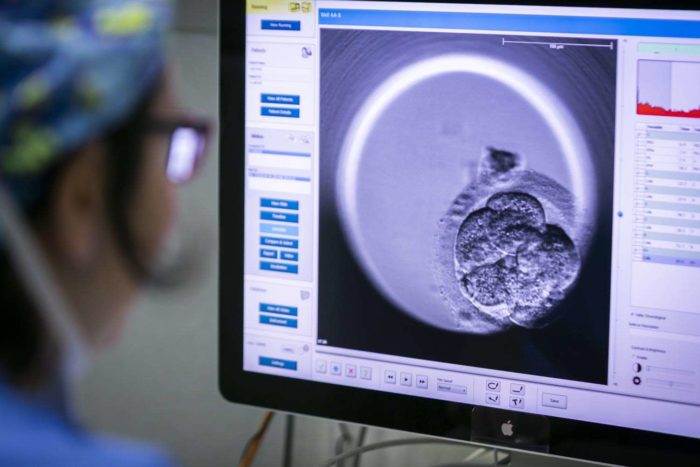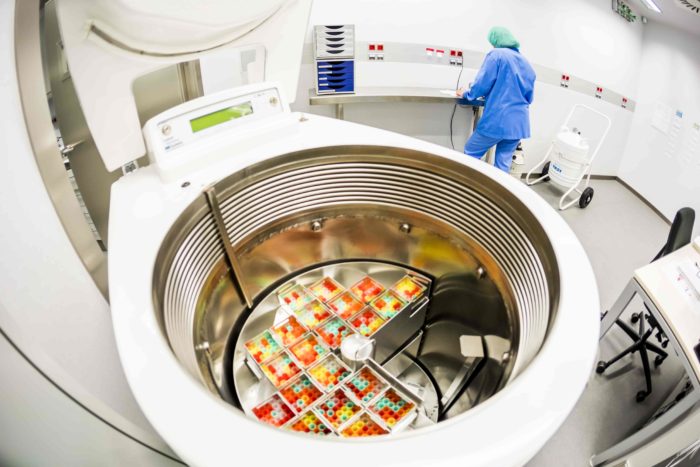86%
18 – 24 years
Best age to have children from a physical point of view.
80%
25 – 30 years
High chances of getting pregnant without help.
65%
31 – 35 years
Production of quality eggs starts to decline.
45%
36 – 40 years
Low fertility. High risk of chromosomal alterations in the eggs.
5%
41 – 45 years
Very low fertility. The woman’s body prepares for menopause.


